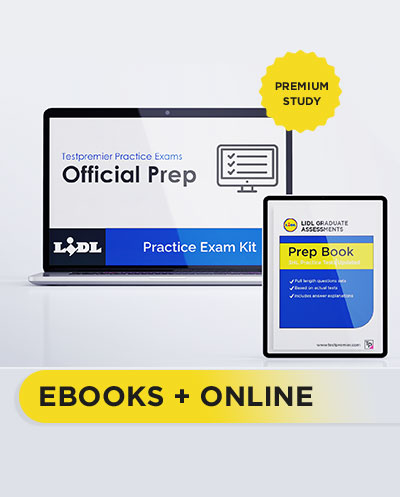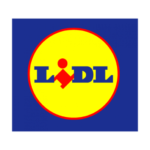Lidl Online Practice Test
Are you aspiring to join one of the fastest-growing supermarket chains in the world? Lidl, with its impressive growth and commitment to quality, offers numerous opportunities for career advancement. However, before you can become a part of this dynamic organization, you’ll need to pass their rigorous aptitude tests. To help you prepare effectively, Lidl provides a Practice Aptitude Test Pack for 2023. In this blog post, we’ll explore the key aspects of this test pack and offer valuable tips on how to make the most of it.
What Is the Lidl Practice Aptitude Test Pack for [Year]?
The Lidl Practice Aptitude Test Pack for 2024 is a comprehensive resource designed to assist candidates in their preparation for the Lidl recruitment process. It encompasses a series of aptitude tests, including numerical, verbal, and situational judgment tests. These tests aim to evaluate your cognitive abilities, decision-making skills, and problem-solving capabilities, all of which are crucial for success in roles at Lidl.
Key Features of the Lidl Practice Aptitude Test Pack
- Variety of Tests: The pack includes a range of tests, ensuring you’re well-prepared for any assessment Lidl may require. This comprehensive approach covers the numerical, verbal, and situational judgment aspects, offering a well-rounded preparation experience.
- Realistic Practice: The questions in the Lidl Practice Aptitude Test Pack closely mirror the types of questions you’ll encounter in the actual Lidl aptitude tests. This ensures that your practice is both relevant and effective.
- Detailed Solutions: The pack provides detailed explanations and solutions for each question. This is invaluable as it allows you to understand where you went wrong and learn from your mistakes.
- Time Management: The Lidl tests are often time-limited, so the practice pack includes time management tips to help you develop the skills needed to complete the tests within the allocated time.
- Progress Tracking: It’s important to keep track of your progress. The practice pack often includes tools to monitor your performance and identify areas where you need improvement.
Tips for Effective Preparation
- Start Early: Don’t wait until the last minute to begin your preparation. Give yourself ample time to familiarize yourself with the test formats and concepts.
- Practice Regularly: Consistent practice is key. Dedicate a portion of your daily or weekly schedule to working through the practice pack.
- Understand the Format: Take time to understand the structure and format of each test. This will help you approach the questions more efficiently during the actual test.
- Focus on Weak Areas: Use the detailed solutions to identify your weak points and focus on improving them. This targeted approach can lead to significant score improvements.
- Simulate Test Conditions: When you feel confident, simulate test conditions as closely as possible. Time yourself and take the tests in a distraction-free environment to mimic the actual testing experience.
Kick off your preparation with our Lidl Practice Aptitude Test Pack For [Year]
Numerical reasoning test / CEB/SHL style Lidl
Verbal reasoning test / CEB/SHL style With step-by-step explanations on every question, and hints on how to solve them faster.
About Lidl company
Lidl Stiftung & Co. KG (German pronunciation: [ˈliːdl̩]; UK: /ˈlɪdəl/ LID-əl) is a German global discount supermarket chain, based in Neckarsulm, Germany, that operates over 10,000 stores across Europe and the United States. Lidl Aptitude tests formats; What to expect: Lidl mostly uses CEB/Gartner (SHL) style tests for its candidate selection. The sections on the assessments may include any of the following test sections, depending on the role that you applied to and also the country you are applying from:
- Numerical Reasoning
- Verbal Reasoning
Sample Questions of Lidl Graduate Practice Pack
The theory goes that everything around us is built up of tiny particles called atoms. Some materials are made up of only one type of atom; these are called elements. An example is a hydrogen. Others are made up of different sorts of atoms bonded together into molecules. These are called compounds. Water, for example, is a compound made up of molecules that contain two hydrogens and one oxygen atom. The force which holds atoms together is called bonds. Atoms are made up of even smaller particles such as neutrons, electrons, and protons. Neutrons and protons are made up of even smaller particles. These have been called quarks and gluons. The search is on for the particles that make up quarks.
GET THE PREMIUM VERSION
Question 1. The atom is the smallest particle of matter.
A. True
B. False
C. Cannot tell
Answer: B
Question 2. All substances are made up of elements.
A. True
B. False
C. Cannot tell
Answer: B
Question 3. A molecule is a cluster of atoms held together by bonds.
A. True
B. False C. Cannot tell
Answer: C
Question 4.
Neutrons are made up of quarks and gluons. A. True B. False C. Cannot tell
Answer: A
Question 5.
It can be inferred from the passage that molecules are made up of neutrons, electrons and protons. A. True B. False C. Cannot tell
Answer: A


